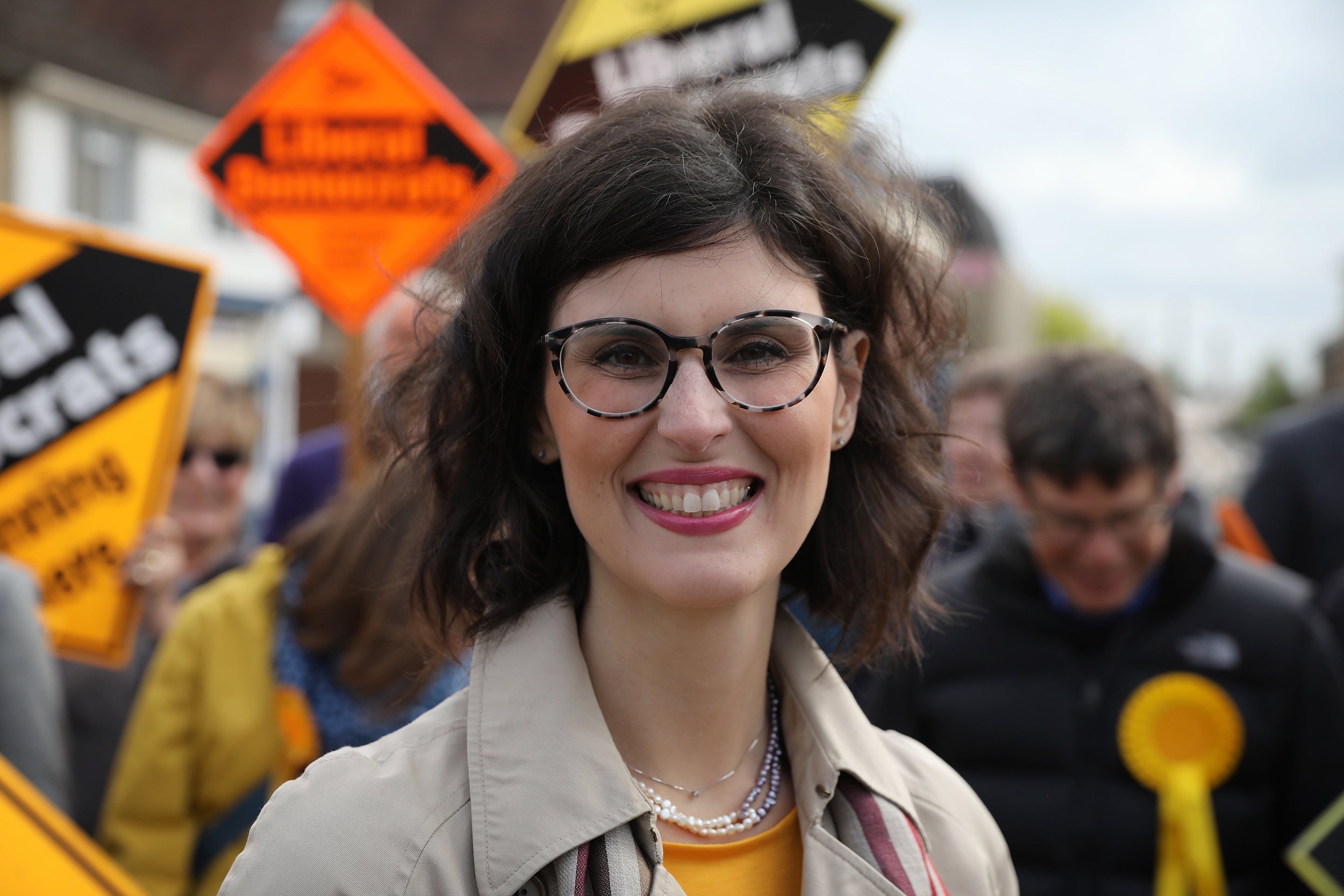Look out for potential new leaders at the Liberal Democrat conference, including Layla Moran and Gina Miller
There is never enough time for every MP to get their own speaking slot. So the choice of those listed is significant

Your support helps us to tell the story
From reproductive rights to climate change to Big Tech, The Independent is on the ground when the story is developing. Whether it's investigating the financials of Elon Musk's pro-Trump PAC or producing our latest documentary, 'The A Word', which shines a light on the American women fighting for reproductive rights, we know how important it is to parse out the facts from the messaging.
At such a critical moment in US history, we need reporters on the ground. Your donation allows us to keep sending journalists to speak to both sides of the story.
The Independent is trusted by Americans across the entire political spectrum. And unlike many other quality news outlets, we choose not to lock Americans out of our reporting and analysis with paywalls. We believe quality journalism should be available to everyone, paid for by those who can afford it.
Your support makes all the difference.The Liberal Democrats face some difficult questions at their annual conference in Brighton. Party members are frustrated that the clear positioning on Brexit, which still dominates the news, has not moved the opinion poll dial by much. Despite the low ratings, this Brighton event offers up lots for those who like to read the political runes.
Rule number one when it comes to agendas is to see who gets speaking slots. There is never enough time for every MP to get time set aside just for them. So the choice of those listed is significant. Of course, the leader and president get places as of right. But the ones to look out for are those who wouldn’t automatically get a slot.
This year, conference will hear from up-and-coming MP for Oxford West and Abingdon, Layla Moran. Despite only being elected in 2017, Moran has been among those listed to take over from Vince Cable. Whether that’s true or not (and the boundary commission recommendations may see her keener to focus on home turf), she is one of the party’s rising stars and certainly one to watch. Anti Brexit campaigner Gina Miller also has a slot on the agenda.
Despite the interest, though, there won’t be debates about the leadership at this conference. Constitutional proposals have to be well telegraphed in advance and go through a set process before getting onto the agenda. But, as ever, at party conference there are less formal meetings (usually consultation sessions on policies or ideas or fringe meetings organised by party groups or external organisations).
Vince Cable’s recent speech, and a considerable amount of media trailing of his thoughts, suggested changes so that a non MP could be leader and that registered supporters (that is, non members) could have some voting rights. Both of these changes have been controversial within the party, while there is broad support from leading party members elsewhere, including MPs.
Lib Dem policies tend to go through a long process. A working group focuses on an issue, doing research and speaking to experts. There is often then a consultation on a paper, with follow-up revisions and rewrites. And finally it comes to conference.
This year sees the immigration policy under debate – and sparks may fly. This is less about some of the policies proposed, which include measures such as “the abolition of the net migration target and the hostile environment policy”, but about the tone of the lengthy document. You can always tell something is contentious when leadership figures feel the need to write in support. And here we have deputy leader Jo Swinson doing just that. This article follows one last month by influential Lib Dem Caron Lindsay pointing out the flaws in the policy document (The vote at conference is about whether to adopt the whole document as party policy, not just the words in the agenda motion).
Conversation within the Lib Dems asks whether the document fails to match up to the party’s values, whether it is too bland, whether it is too apologetic. There are fears that some wording buys into prejudice against immigrants. Internally, there are moves for a vote against or for a reference back (a procedure which means conference refuses to vote on a motion and effectively asks the party to go away and think again). The issue is prioritised in the most recent issue of Liberator magazine, in which Lindsay elaborates on what’s wrong.
It is an exciting time in politics. It’s impossible to open a newspaper without screeds about party splits and new centre parties being formed. Of course, Vince Cable would argue that the Lib Dems are the centre party. In the 1980s, we saw splits and a new political entity was born. But the Social Democratic Party (SDP) later became (mainly) part of the Liberal Democrats.
The question for Cable is whether he can make the Liberal Democrats strong enough and well-positioned enough to fulfil the role those speculating about a new party say is needed. He is clearly thinking about what legacy he will leave when he stands down. His leader’s speech this Tuesday may tell us how he plans to meet the challenge.
Paula Keaveney is a senior lecturer in public relations and politics at Edge Hill University
This article first appeared in The Conversation. Read the original article.
Join our commenting forum
Join thought-provoking conversations, follow other Independent readers and see their replies
Comments